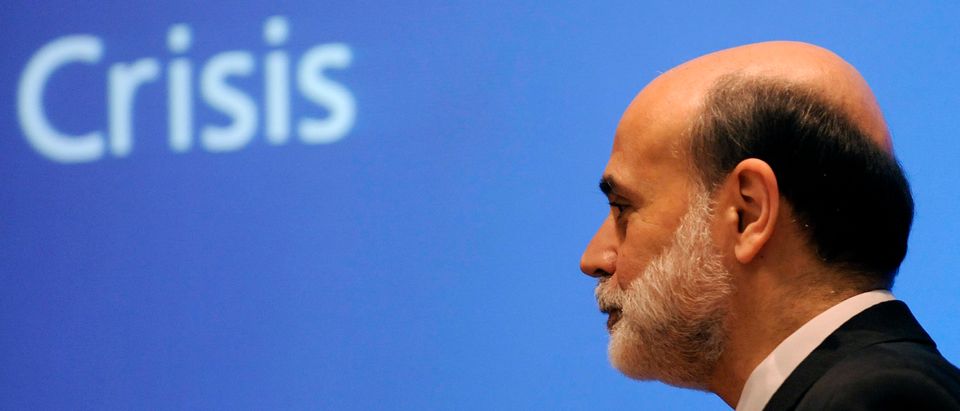Former chairman of the Federal Reserve Ben Bernanke published a New York Times op-ed Tuesday in which he argued that we’re not about to repeat the financial upheavals experienced from 1966 to 1980.
Bernanke went into detail in his op-ed on how the former economic fluctuations in America, such as America’s Great Inflation period, were based largely on directives from political leadership which stemmed from what appeared to be short-term political gains and not necessarily positive for the economy over longer time periods. He argued that we are not at risk of repeating this experience, but there are some strange holes in his piece that do little to comfort fears of an impending economic crash.
A majority of the piece describes how the current Fed chairman, Jerome Powell, receives great support from the White House and Congress to act autonomously. Powell was confirmed for his second four-year term in May, despite criticisms of his decision to withdraw stimulus slowly and his descriptions of price increases.
It is ultimately the public’s faith in the Fed to fight inflation that lies at the crux of Bernanke’s argument.
POLL: Majority Of Americans Are Cutting Back On Eating Out And Going To Grocery Store
Also known as things that help strengthen the economy https://t.co/A07J6vgyWs
— Daily Caller (@DailyCaller) June 10, 2022
Bernanke points out the similarities between the late 1960s and now, noting how “heavy federal spending (on the war in Vietnam and Great Society programs in the 1960s, on the response to Covid in 2020 and 2021) added to demand. And shocks to global energy and food prices in the 1970s made the inflation problem significantly worse, just as they are now.” He also addresses supply chain problems, leading to high oil prices, which will continue to impact the “degree to which the central bank will have to tighten monetary policy.”
Apparently inflation will not become “self-perpetuating, with price increases leading to wage increases leading to price increases,” so long as We The People have confidence in the Fed to take whatever measures to bring down inflation over time, Bernanke argues. So, as long as the Fed has enough policy independence and is willing to take responsibility for inflation, then Powell and his team are more credible than his 1966-1980s counterparts. (RELATED: ‘Put On Your Seat Belts On’: BlackRock President Warns ‘Entitled Generation’ Of Shortages Due To Inflation)
At the same time, Bernanke argued that the Fed “can do little” about the global supply chain crisis and confluence of events around the COVID-19 pandemic. What the Fed can do to help reduce inflation is slow “growth in demand,” according to Bernanke.
But what does it mean to slow the “growth in demand” as we “wait for supply constraints to ease?” Bernanke doesn’t explain. He was contacted for comment but did not immediately respond.


